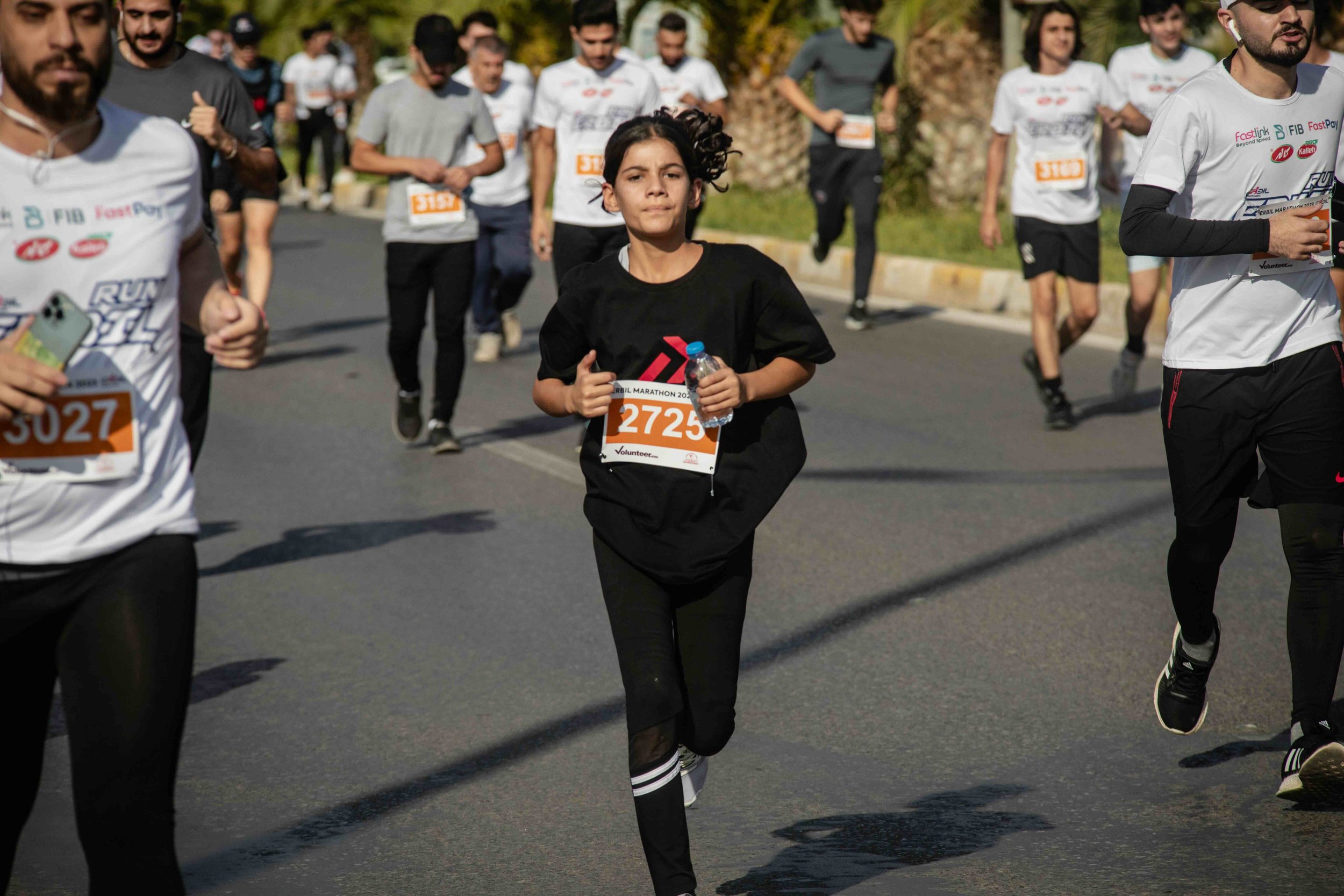
WHAT WE DO
At Free to Run, we are not focused on measuring athletic performance. The success of our programs is linked to the skills and competencies that participants develop, as well as the shift in attitudes achieved within themselves and in the surrounding communities. Our goal is to increase the opportunities for women and girls to engage in public life, using sport as a tool of empowerment and education.
Free to Run programs include a combination of physical fitness, life skills development, and community service. Groups participate in public, outdoor sports like running, hiking, and camping. They also volunteer in their community and even lead local projects, which further strengthens their own leadership capabilities and community support.
RUNNING AND OUTDOOR SPORTS
Sports opportunities are extremely limited or even non-existent in the regions we operate in. These restrictions are often even worse for women and girls in areas of conflict. We address this gap by focusing on outdoor sports, supporting girls to step outdoors and reclaim public space to challenge the perception of the roles they can and should play in society. We take participants outside of their usual environments and create opportunities for them to experience the outdoors. Learn to Run sessions are delivered weekly for the first 3-5 months of Free to Run’s program, covering light running, stretching, nutrition and hydration training in safe spaces. Those who choose to continue with Free to Run move into a ‘Core Team’, training with coaches 3-4 times a week for up to six months, with the goal of running up to a half or a full marathon.
LEARNING AND LEADERSHIP
Central to the learning and leadership aspect of our program is the Life Skills through Sports (LSS) curriculum, which is delivered concurrently with the Learn to Run sessions. Designed in collaboration with a pro bono education specialist, the LSS curriculum helps participants learn skills like communication, conflict resolution, and leadership. We bring together groups from different cultures, offering them the space, time, and support to share their experiences, learn from each other, and re-examine their preconceptions. Alumni of the program are then selected to lead LSS programming for the following year’s cohort as volunteer Community Development Leaders (CDLs). This is an opportunity to practice their leadership and facilitation skills and directly influence the direction of the curriculum to ensure alignment with participants’ needs.
PSYCHOSOMATIC RESILIENCE
In communities where the barriers to participation in our traditional programming are a non-starter (including Afghanistan), Free to Run offers a psychosomatic and embodied learning methodology that is trauma-informed and focused on building resilience through the mind-body connection. Physical activity is a proven pathway to build resilience and protect individuals from adversity such as psychological distress. This holistic approach uses indoor physical activity and parallel psychosocial leadership sessions to build protective assets such as social connections, role models, access to safe spaces, physical strength, self-confidence, and future orientation.
VOLUNTEERING
Free to Run team members are required to regularly volunteer in the community. Each year, their volunteer projects challenge the preconceptions held about women’s roles, increasing community acceptance of their leadership and expansion of public safe spaces.





